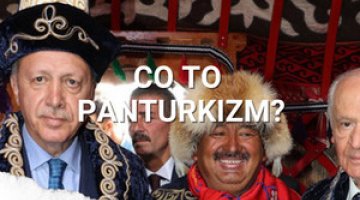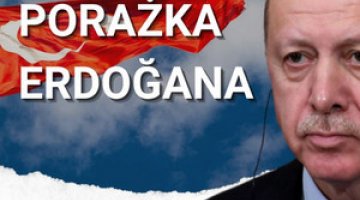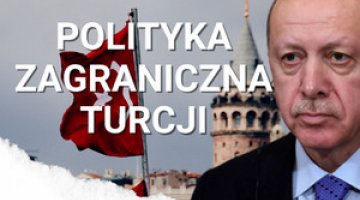Turkey’s veto towards Finland’s and Sweden’s NATO membership bid?

On 13 May, President Recep Tayyip Erdoğan publicly cast doubt on whether Turkey would accept Finland and Sweden into the North Atlantic Alliance, pointing out, for example, the support for anti-Turkish terrorist organisations in these countries (including the Kurdistan Workers’ Party, PKK). Foreign Minister Mevlüt Çavuşoğlu also spoke in a similar vein. Erdoğan’s statement was softened a day later at by İbrahim Kalın (adviser and spokesman for the head of state) with words about an open door, but on 16 May the president again emphasised the categorical lack of trust in Turkey concerning Finland and Sweden and how unreasonable the announced accession talks would be with delegations from these countries.
The main and official reason for Ankara’s opposition to the two countries’ accession to NATO is that they provide refuge and allow members and sympathisers of the Kurdish PKK and the leftist DHKP-C, which Turkey (and the EU) consider to be terrorist organisations, as well as people accused of having links to the Gülen Movement to operate in Scandinavia (the Turkish authorities claim the Gülen Movement was responsible for the failed putsch in 2016). For years, Ankara has been demanding the extradition of at least 24 wanted persons and, more broadly, to curb the activity of circles linked to the opposition, which it views as radical. Erdoğan has also criticised both countries for an informal embargo on arms exports to Turkey (introduced in 2019 after controversial Turkish operations targeting Syrian Kurds). He also raised principled issues, mentioning what he considered it to be a wrong decision to allow Greece, which was in conflict with Turkey in 1980, to rejoin NATO military structures.
Turkey’s position on Finnish and Swedish membership in NATO is to be the subject of Çavuşoğlu’s talks with the US Secretary of State on May 18. A visit by Finnish and Swedish delegations to Turkey is also expected to take place in the coming days.
Commentary
• Allegations of “support or tolerance of anti-Turkish terrorist organisations” by Western countries are a constant and serious problem which Ankara raises. The PKK is quite commonly treated in Turkey as a violent terrorist organisation that seeks to undermine the territorial integrity of the country. For the government (and part of the population), the Gülen Movement, which forms part of the pathological so-called “deep state” and which is being played by the US in order to gain control over Turkish politics, is equally dangerous. Western public opinion and national governments have supported PKK-linked organisations in Syria (and to a lesser extent Gülen-linked institutions), allowing their activities (including those of a financial, propaganda and training nature) on their territory. Ankara regards this as an act of open hostility and disloyalty and proof of double standards on the part of its allies. For the West, on the other hand, these accusations are unfounded, political in nature and prove Turkey’s notorious violation of democratic norms. The problem recurs regularly – it has already resulted in sanctions or the obstruction of dialogue by the West, but also in the constant stiffening of Ankara’s position (e.g. tensions with the USA and rapprochement with Russia in the Syrian context).
• The deeper background to Turkey’s reluctance to enlarge NATO to include the Scandinavian countries (just as it once did, for example, to include Poland, and later Georgia and Ukraine) is a fundamental fear that its own strong position in the Alliance may wane, that NATO’s centre of gravity may shift northwards, that the United States may grow in strength within its framework, and finally, that it may lead to conflict with Russia (Ankara has developed effective bilateral channels for interaction with Moscow, including in the security sphere). Given the often tense relations with other NATO members (mainly Greece, but also the USA and France), Ankara regularly takes opportunities to emphasise the importance of its voice within the Alliance.
• It may be expected that Turkey’s present position on NATO enlargement – although harsh and touching upon issues fundamental for Turkey – is conditional and serves the purpose of gaining both tangible and symbolic concessions for itself. These include, above all, significant restrictions on the freedom of action of the Turkish opposition in Scandinavia (the optimum option would be the extradition or expulsion of the most controversial individuals), but also throughout Europe, which would at the same time involve an improvement in the assessment of the state of democracy and legal standards in Turkey. Another expected concession would be the withdrawal of the embargo on the supply of weapons to Turkey. More serious – and probably crucial for Ankara – would be Washington’s consent to the Congress-blocked sale of F-16s to Turkey (which is seeking this after being punitively excluded from the F-35 development and use programme) and, more broadly, US acceptance of (part of) its ambitions in the Mediterranean and the Middle East region. It seems that at least a partial accommodation of these demands can be worked out in the course of talks with the United States, as well as with Finland and Sweden.
• Although the scenario of an agreement with Turkey on NATO enlargement should be regarded as the most likely, it is not a foregone conclusion. The subject of the dispute is of a principled nature for the government and much of public opinion and, arguably, for Stockholm and Helsinki. Ankara’s aggressive negotiating style combined with the relatively low trust between it and Washington and other Western capitals, as well as the awareness of Turkey’s significant and growing economic (and thus socio-political) problems (which may stiffen the West’s negotiating stance) also pose a challenge. The hypothetical failure of Sweden’s and Finland’s accession to NATO due to Ankara’s opposition would significantly exacerbate tensions between it and its allies (the US, the eastern flank states), while stoking anti-Western resentment and stimulating the unilateralism in Turkish politics, including a renewed drift into games with Russia.




